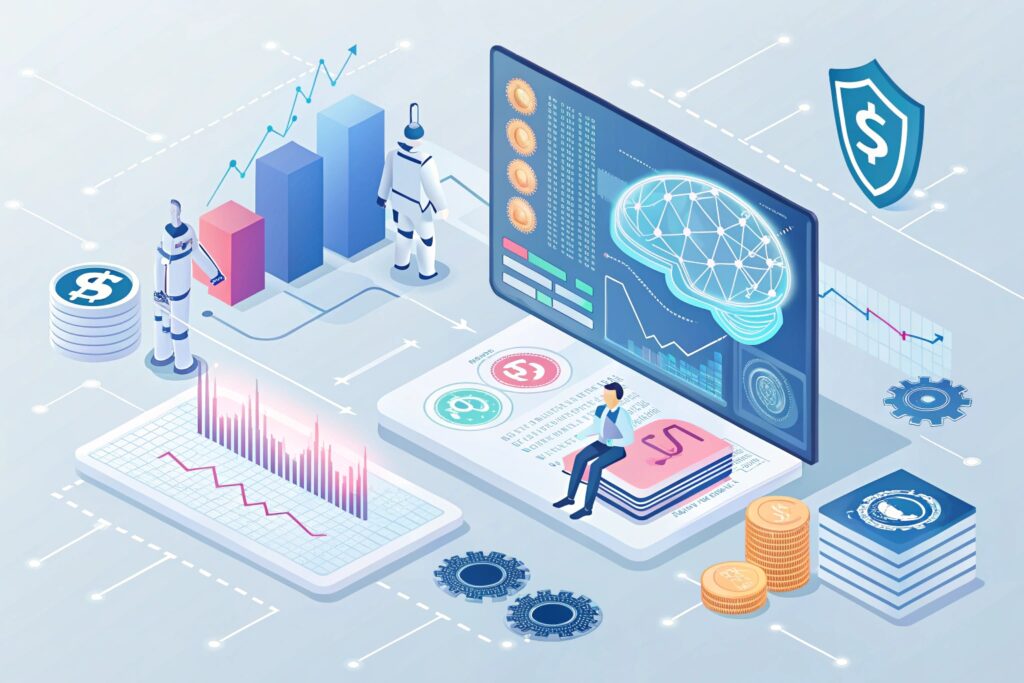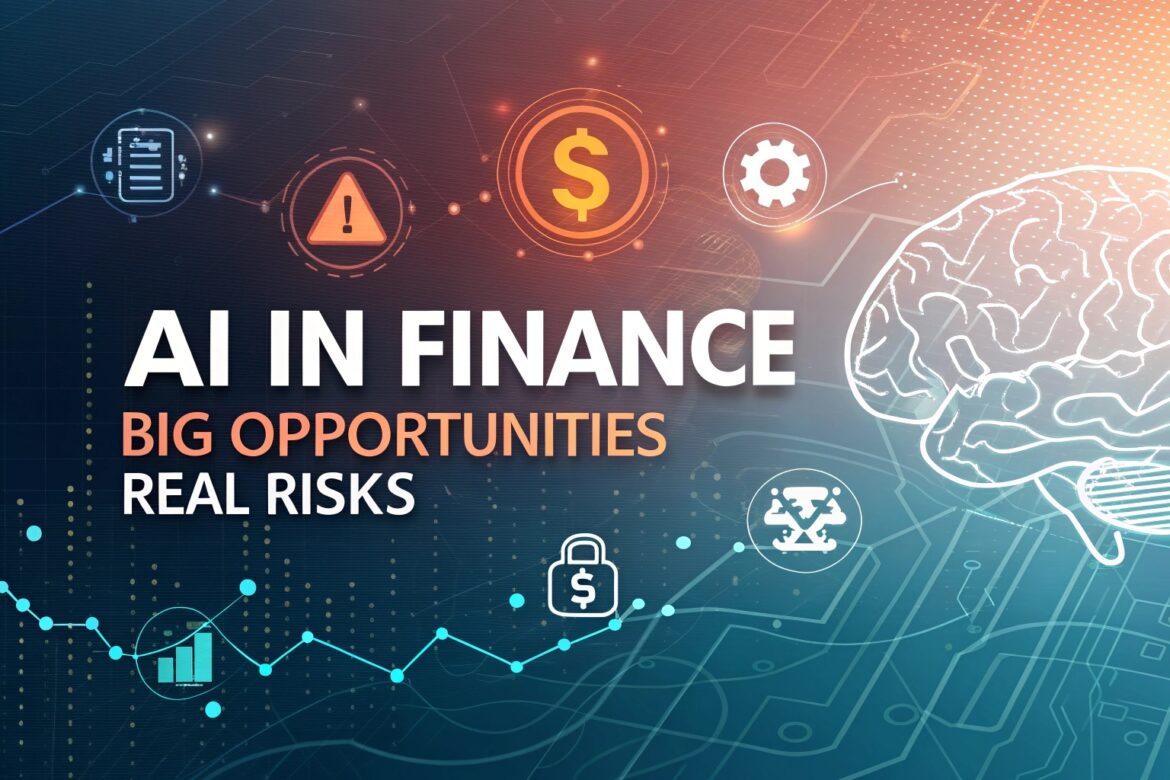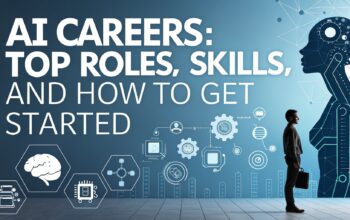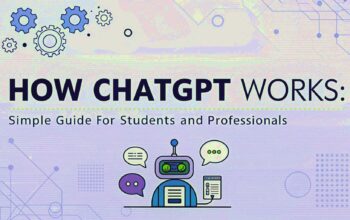Explore how technology is transforming banking, investing, and fraud detection — and what it means for finance professionals.
Introduction:
The finance world is changing fast. One of the biggest reasons?.
From detecting fraud to making smarter investment decisions, AI is helping financial institutions work faster, safer, and smarter. But along with these exciting opportunities come serious risks—like data privacy issues and overdependence on machines.
In this blog, we break down the real-world opportunities and risks of AI in finance—in plain language—so you can understand how it’s impacting your business and career.
Major Opportunities of AI in Finance
1. Smarter, Faster Decision-Making
AI can analyze massive amounts of financial data in seconds. This helps banks and investors make better decisions—like approving loans, spotting market trends, and pricing assets accurately.
With AI in finance, professionals can work more efficiently and with greater accuracy.
2. Stronger Fraud Detection
AI systems are excellent at spotting unusual patterns in transactions. If someone tries to make a suspicious withdrawal or transfer, AI can flag it immediately.
3. Automation Saves Time and Money
AI can automate routine tasks like:
- Invoice processing
- Data entry
- Report generation
This not only saves time but also reduces human error. Finance teams can focus on big-picture strategy while AI handles the boring stuff.
4. Personalized Customer Experiences
Banks and financial platforms now use AI to offer custom advice and product suggestions. By studying customer behavior, AI helps create a more personalized experience—boosting satisfaction and loyalty.
AI in finance is making services more human—even though it’s powered by machines.

Key Risks of AI in Finance
1. Data Privacy Issues
AI relies on data—and lots of it. If that data is not handled properly, it could lead to security breaches or violations of privacy laws.
Finance companies must be extra careful when using AI in finance to protect sensitive customer information.
2. Bias in AI Algorithms
AI learns from historical data, which may contain hidden human biases. For example, an AI system might deny a loan based on biased patterns in past data.
To avoid unfair decisions, it’s important to review and test AI models regularly.
3. Too Much Trust in Technology
While AI is powerful, it’s not perfect. Relying too heavily on AI without human review can lead to serious mistakes—especially in complex or fast-changing markets.
Professionals must stay involved and never assume the AI is always right.
4. Compliance and Regulation Challenges
Laws around AI are still evolving. If financial institutions use AI tools without understanding the legal landscape, they may risk fines or regulatory issues.
Using AI in finance means staying up to date with compliance rules.
How Finance Professionals Can Stay Ahead
To safely use AI in finance, here’s what professionals should do:
- Learn how AI works. You don’t need to be a programmer, but you should understand the basics.
- Keep humans in the loop. Use AI to support—not replace—your judgment.
- Audit AI tools regularly. Check for bias, errors, and compliance.
- Stay informed. Regulations are changing, so keep learning.
There’s no doubt that AI in finance is here to stay. It’s changing the way we work, make decisions, and serve customers.
But to truly benefit, we need to balance the power of AI with the need for human oversight and ethical responsibility.
Finance professionals who embrace AI thoughtfully will lead the future—not be replaced by it.
FAQs:
1. How is AI being used in finance today?
AI is used for fraud detection, credit scoring, investment analysis, and customer service automation.
2. What are the main benefits of AI in finance?
The main benefits include faster decisions, better fraud detection, time-saving automation, and personalized services.
3. Is AI in finance safe to use?
Yes—if it’s used responsibly. Companies must manage data securely and test AI systems to avoid bias or mistakes.
4. Can AI replace financial professionals?
No. AI supports professionals by handling routine tasks, but human judgment is still essential.
5. What’s the future of AI in finance?
AI will continue to grow, with more advanced tools and tighter regulations. The future is about combining AI with human intelligence.



